Rep. Maxine Waters (D-Calif.) has characterized Republican lawmakers as “domestic terrorists” and “extremists,” insisting that she hopes people won’t continue to elect them, a statement that attracted criticism from Rep. Lauren Boebert (R-Colo.).
Waters was asked about the prospect of police reform in Congress during an interview for “Ayman” on MSNBC on Saturday.
She called GOP members of Congress the “Marjorie Taylor Greene Republican caucus” and insisted that she doesn’t expect any police reform on the federal level.
“We have these right-wing conservatives who are, you know—we have domestic terrorists in the House of Representatives. These people are extremists,” she said. “So I am not optimistic that that is the way that it is going to happen until the people of this country really decide that they do not want it, and they are not going to elect people who act in the fashion that they act.”
In March of last year, Waters was one of three Democrats who sent a letter to the Government Accountability Office asking for a review of how “domestic violent extremists” and “homegrown violent extremists” fund their activities.
Boebert criticized Waters for her comments.
“Maxine Waters says that we have House Republicans who are domestic terrorists,” Boebert posted on Twitter on Monday. “Interesting, as I don’t remember anyone in the House who has called for more violence than Maxine Waters.”
In April 2021, Waters told protesters to “get more confrontational” and “make sure that they know that we mean business” if the officer accused of killing of George Floyd in 2020 was acquitted.
Constructing a Threat of Domestic Terrorism
Since Jan. 6, 2021, domestic terrorism has been pushed by the mainstream media as a widespread threat facing the United States.
In September, Rep. Jim Jordan (R-Ohio) revealed information from an FBI whistleblower who alleged that the FBI was “manipulating” case files related to the Jan. 6 Capitol breach to make it seem like America has a bigger domestic terrorism problem than it actually does.
“The manipulative casefile practice creates false and misleading crime statistics,” the whistleblower alleged, according to Jordan.
“Instead of hundreds of investigations stemming from a single, black swan incident at the Capitol, FBI and DOJ officials point to significant increases in domestic violent extremism and terrorism around the United States.”
According to the whistleblower, a Washington task force identifies “potential subjects” related to the Jan. 6 case and possible locations where they might reside. The task force then sends “information packets” to several local field offices around the country, asking them to open investigations.
As a result, even though the multiple field offices are only investigating a single incident, it creates the illusion that these threats are present in jurisdictions across the nation, Jordan said.
In testimony to the House Judiciary Committee in July, Assistant Attorney General Matt Olsen admitted that the rising domestic terrorism cases over the previous two years can mostly be traced to a single incident—the Jan. 6 breach.
“That number does include the Jan. 6 cases, and there, of course, we have over 800 arrests of individuals—not all of them are characterized as domestic violent extremists, to be clear, but many are,” Olsen said. “Those do account for at least a significant portion of that jump over the past two years in the number of investigations.”
Left-Wing Domestic Terrorism Push
In March 2022, House Judiciary Committee Chairman Jerrold Nadler (D-N.Y.) touted the Domestic Terrorism Prevention Act of 2021 as necessary to combat “white supremacists.”
The push to link conservatism with domestic terrorism is penetrating schools as well. In September 2021, the National School Boards Association (NSBA) wrote a letter to the Department of Justice calling for an investigation into parents under domestic terrorism laws.
The parents had attended school board meetings to object to school policies like COVID-19 restrictions and the teaching of critical race theory, which the NSBA equated with “domestic terrorism.”
The letter argued that “America’s public schools and its education leaders are under an immediate threat.”
The organization subsequently apologized for the letter.
Caden Pearson contributed to this report.



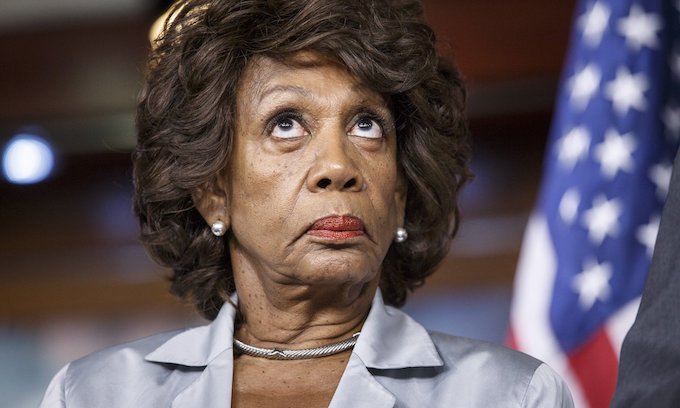
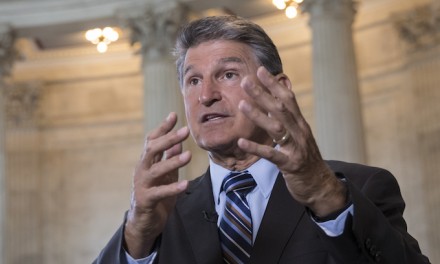
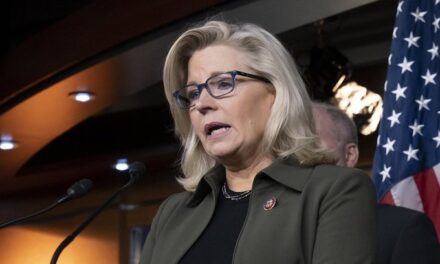

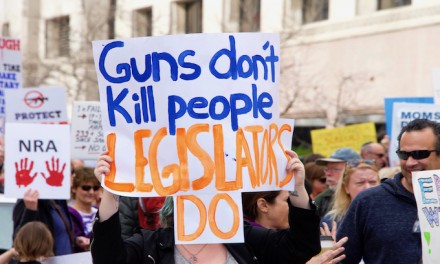







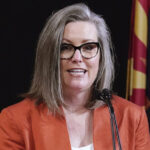


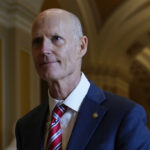
Rep. Maxine Waters (D-Calif.
How can anyone respect her or believe anything that comes out of her lie and propaganda spitting mouth. Just review her actions and words from the past 4 plus years.
SHE certainly knows terrorists, BY SUPPORTING ANTIFA AND BLM.
“Rep. Maxine Waters (D-Calif.) has characterized Republican lawmakers as “domestic terrorists” and “extremists,” insisting that she hopes people won’t continue to elect them,” HUH???
The “Socialist Democrat Party State” political officers, Gestapo, Woke and Cancel Culture are just getting started.
You will obey, be loyal and support the policies of the “Socialist Democrat Party State” or you will be classified as “Enemies of the State” and “Domestic Terrorists”.
24 Aug. 2020 – Monday on MSNBC’s “Live,” House Speaker Nancy Pelosi (D-CA)
referred to President Donald Trump and his Republican supporters as
“domestic enemies” and “enemies of the State”.
Note that when parents objected to their children being taught the “critical race theory” the Democrat Party controlled school union ask the Biden administration to declare parents as domestic terrorist and to be investigated by their FBI Gestapo.
Now it has become a Democrat political tool to call anyone who disagrees with the Democrats destructive agendas, as “domestic terrorists” and “extremists,” when in fact it is the Democrat Party is the domestic terrorists and extremist.
This after she basically promoted domestic terrorism against any person involved in the Donald Trump administration, calling for public confrontation no matter where including family members!
AND yet, we’ve STILL NOT seen anyone with the power to do so, even CHARGE her with incitement..
Back in the 1950s, back when America was still a “sane” country, she, along with Adam Schiff, Erick Swalwell, and Ilan Omar, would’ve been expelled from the House, and probably would’ve been investigated by both the House and Senate committees on Unamerican Activities.
What should have happened is expelling those ‘commies’ FROM THE NATION.. And never let them back in!
You can look long and hard and not find anyone as dumb and clueless as this woman. Oh, wait, found someone. Everyone who has ever voted for her
These days, that’s pretty much the ENTIRE state of commiefornia.
Is she anticipating a lightning bolt from Heaven (see photo).
This woman, along with her numerous Liveral friends, has more mouth than brain and spreads more venomous rhetoric, hate, and discontent than should be allowed.
I love the eye-rolling photo of Maxine that GOP USA always shows in any article about her! This woman is dumber than a bag of hammers. Ditto for the good folks that keep sending her back to Capitol Hill. She hasn’t done a darn thing for her district in all her years in Congress, but somehow keeps getting re-elected.
If domestic terrorism and extremism are on the rise in America, is it any wonder?
Violent rhetoric begets violent rhetoric.
Extremism begets extremism.
Violence begets violence.
He or she who lives by the sword, no matter what form that takes, shall die by the sword.
Christ spoke this basic truism in the garden of Gethsemane, and it’s as true today as it was back then.